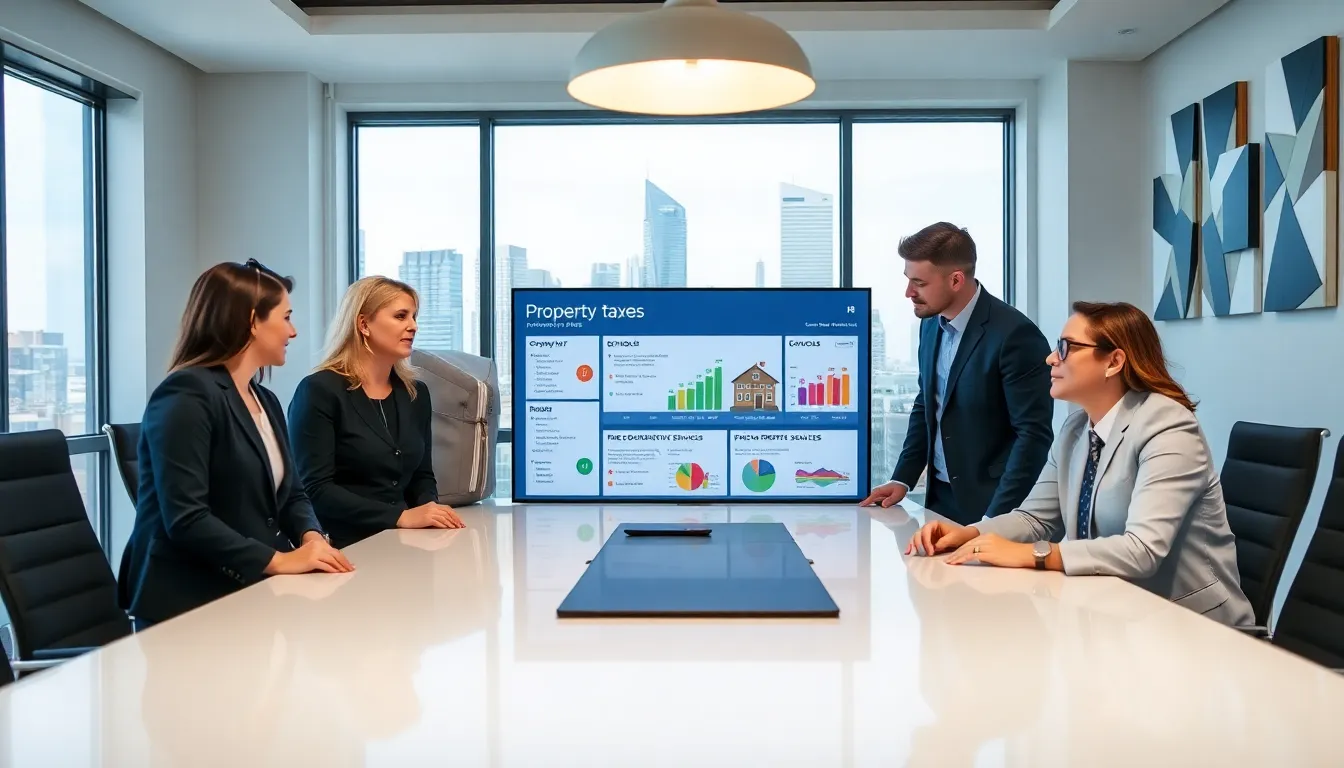Ever stared at your property tax bill and thought, “What on earth is this?” If properties had personalities, that bill would surely have a knack for making you feel confused and slightly lighter in the wallet. But fear not. Understanding property taxes doesn’t have to require a degree in accounting. This humor-filled guide will take you on a journey through the land of property taxes, helping you navigate the complexities with a smile. Get ready to transform those confusing figures into clear insights.
Table of Contents
ToggleUnderstanding Property Taxes

Property taxes are essentially a local government’s way of funding essential services that keep a community running smoothly. Think of it as a ticket to the neighborhood block party, except in this case, the party is year-round services like schools, police, fire departments, and road maintenance.
At its core, property tax is a tax based on the value of real estate. Local governments assess the value of real estate periodically, adjusting tax rates based on the evolving needs of the community. Understanding the basics will help homeowners realize that these taxes are fundamental, although painful, cogs in the machinery of local governance.
How Property Taxes Are Calculated
So how exactly does one derive the property tax amount? It’s not as straightforward as a math problem in elementary school, but here’s a simplified breakdown:
- Assessed Value of Property: This is the starting point. Local assessors evaluate properties to determine fair market values. This can be done through various methods, including comparative analysis and income generation potential.
- Tax Rate: Once the property’s assessed value is determined, it gets multiplied by the local tax rate. This rate can fluctuate depending on local budgets and requirements.
- Exemptions and Deductions: Some properties might be eligible for exemptions (like homestead exemptions) or deductions which can reduce their tax burden.
As a result, the formula looks like this:
Property Taxes = Assessed Value x Tax Rate – Exemptions. It’s pretty simple math once you get past the jargon.
One notable point: tax rates vary widely between different locations, making understanding individual situations key.
Factors Influencing Property Taxes
Several intertwining factors impact property taxes. Here’s a closer look:
- Location, Location, Location: The location of a property plays a significant role. Properties in high-demand areas typically face higher taxes due to greater demand for local resources and services.
- Market Conditions: When property values soar, tax assessments rise accordingly. A booming market can lead to a hefty tax bill.
- Local Government Needs: Taxes also fluctuate based on community needs, such as funding for new schools, emergency services, or infrastructure improvements.
- Property Changes: Any renovations or improvements made to a property can result in a reassessment, affecting tax amounts.
How to Check Your Property Tax Amount
Checking property tax amounts might feel like searching for a needle in a haystack. But, the process can be surprisingly straightforward:
- Visit Local Government Websites: Most counties publish tax information online, where taxpayers can find details about their property taxes.
- Use Property Tax Assessment Tools: These tools allow users to input their address and access an array of information about assessed value and tax amounts.
- Contact Local Assessor’s Office: If the online route feels overwhelming, a chat with someone at the local assessor’s office could clear up confusion fast.
Transparency in property tax amounts helps demystify what can sometimes be shrouded in mystery.
Tips for Managing Your Property Taxes
While paying property taxes might feel like a monthly dose of dread, there are effective strategies for managing those expenses:
- Stay Informed: Keep up with local government meetings to understand future tax rate changes.
- Review Your Property Assessments: Ensure that your property has been assessed fairly. If it seems off, inquire further, it could save you money.
- Explore Exemption Opportunities: Every dollar counts. Look into available exemptions that could lessen your tax burden.
- Budget Smartly: Include property taxes in your annual budget. Knowing what to expect helps in avoiding unpleasant surprises.
Common Myths About Property Taxes
Property taxes are often shrouded in myths and misconceptions. Let’s debunk a few:
- Myth #1: Higher Property Values Always Equals Higher Taxes: Not necessarily. A boost in property value doesn’t always translate to higher taxes, especially if tax rates lower to keep pace.
- Myth #2: Property Taxes Fund Only Schools: Sure, schools take a chunk of the budget, but property taxes fund a whole lot more, think roads, parks, and public safety.
- Myth #3: Once Set, Taxes Never Change: Tax rates can and do change. Local governments adjust them to meet new funding needs, so staying updated is essential.
By busting these myths, they can better grasp the reality of property taxes.







